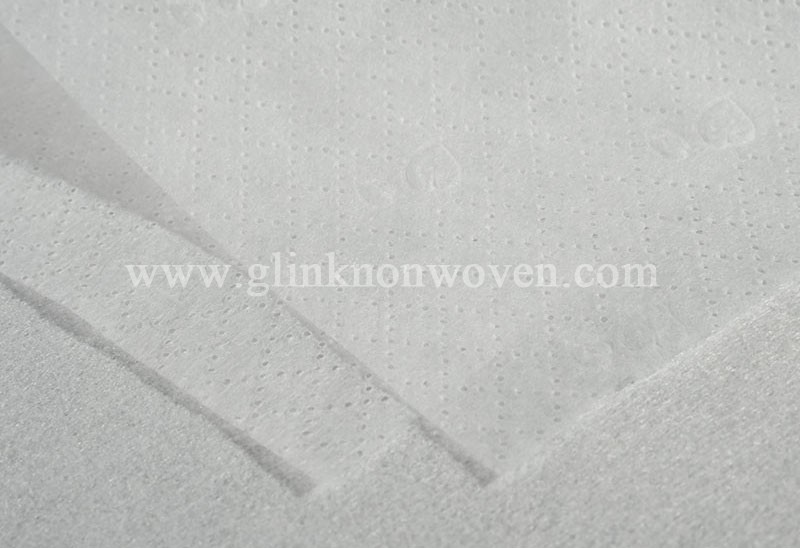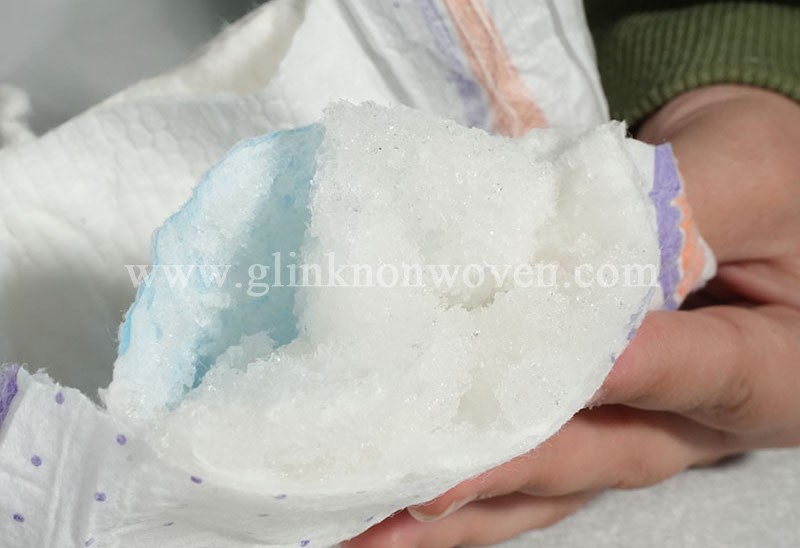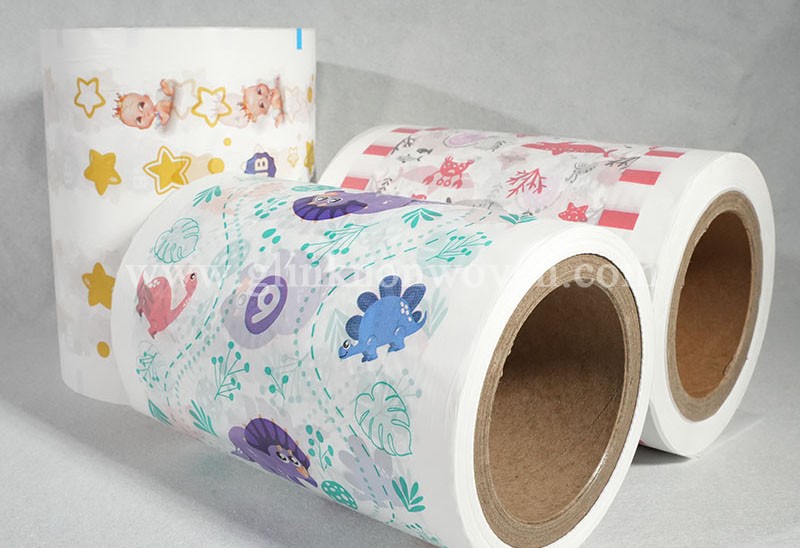Newborns have delicate and sensitive skin, and the choice of raw materials for disposable diapers as a 24-hour intimate product directly affects the comfort and health of the baby. Modern diapers achieve a balance of water absorption, breathability, and softness through the combination of various high-performance materials. The following is a detailed analysis of the core raw materials for diapers:
1. Surface material: skin friendly and non irritating
3D embossing non woven fabric: Most high-end diapers use polypropylene (PP) non-woven fabric, with delicate fibers and strong breathability, which can quickly remove moisture and reduce the risk of red buttocks. Some brands will add natural cotton fibers to enhance the tactile sensation.
3D embossing process: reduces skin contact area and keeps the surface dry.
Antibacterial treatment: Some products may add natural antibacterial ingredients (such as chamomile extract) to inhibit bacterial growth.

2. Absorbent core: the core of efficient water locking
Polymer Water Absorbent Resin (SAP): It can absorb liquids weighing tens of times its own weight, has strong water locking ability, and avoids reverse osmosis. High quality SAP requires food grade safety certification (such as the EU 10/2011 standard).
Fluffy pulp: As a traditional absorbent material, it is mixed with SAP to improve the flow rate, but in recent years it has gradually been replaced by full core (pure SAP+dust-free paper) technology, making diapers thinner and lighter.

3. Leak proof layer: Double protection design
Breathable PE film: The bottom layer adopts microporous breathable film, which allows water vapor to be discharged but blocks liquid leakage, avoiding stuffiness. Three dimensional leak proof edge: usually a combination of elastic rubber and non-woven fabric to prevent side leakage, while also being soft and not tight on the legs.

4. Other detailed materials
Waist circumference and Velcro: Elastic spandex and non-woven fabric ensure a snug fit, while some brands use plant-based adhesives (such as corn starch adhesive) to reduce the risk of sensitization.
Environmentally friendly biodegradable materials: Emerging brands use PLA (polylactic acid) or bamboo fiber to replace some plastic components, reducing environmental burden.
Safety standards for raw materials
High quality diapers require multiple international certifications:
Skin safety: ISO 10993 (biocompatibility testing) OEKO-TEX ® Standard 100 (no harmful substances).
Environmental friendliness: FSC certification (sustainable forest fluff pulp), compostable biodegradable label.